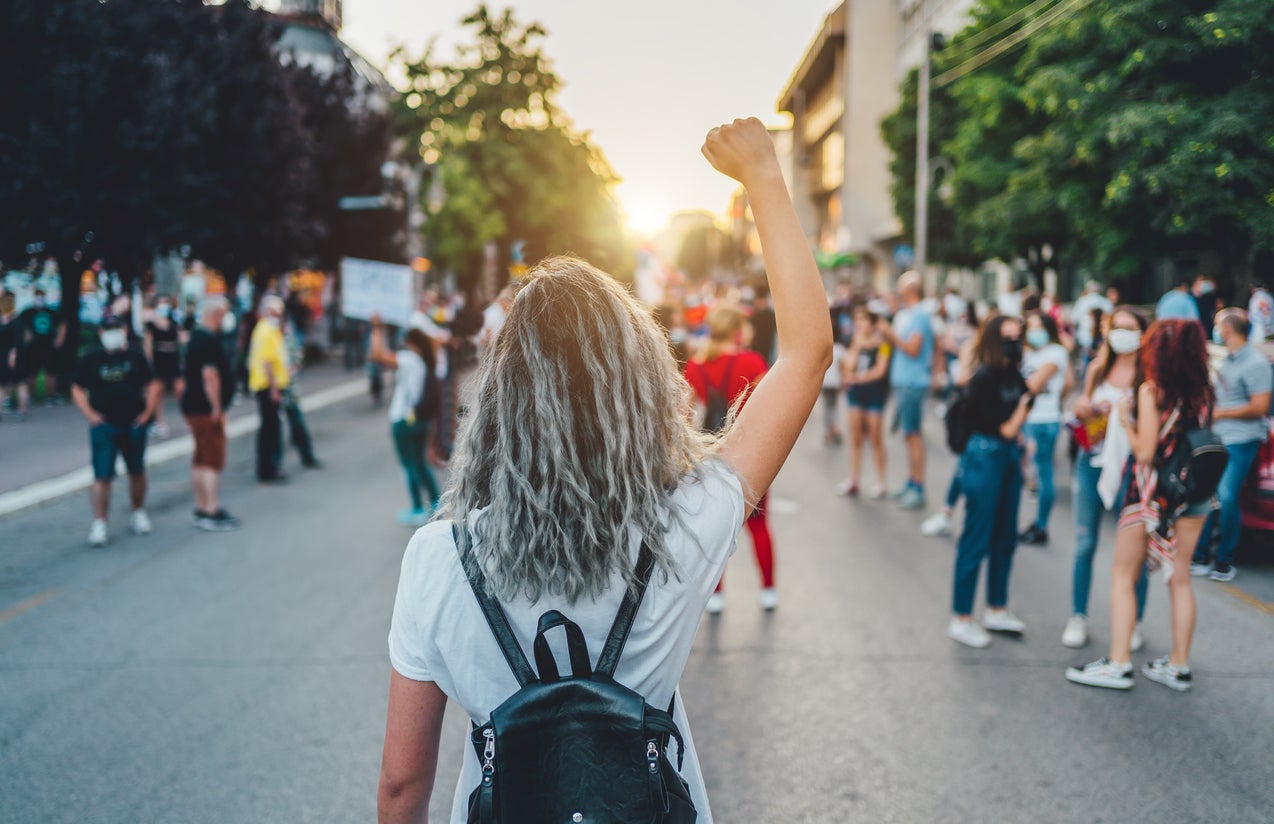Young people should have a say in policies that affect their future
We need to hear from those disproportionally affected by the challenges we face, write Rosie Lockwood and Serena Kelly


As we approach 2022, many young people are awake to, and anxious about, what awaits them, both now and in the future. They’ve had a tough couple of years.
Education has been disrupted by the pandemic, while nine in a classroom of 30, according to Child Poverty Action Group data, will be growing up in poverty. Support for young people has been eroded by austerity, with youth services cut by 70 per cent over the last decade, found research by the YMCA. And looking ahead, there are huge challenges such as the climate crisis.
Young people did not create these issues. But they are part of the answer to them. They’re an energetic, diverse, passionate generation, who care about their communities now as well as those who will follow them in the future. Thousands of children and young people have taken to the streets in recent years to call for climate action, and as we saw at the climate summit in Glasgow this autumn, they have the motivation and ideas we need to win the race to net zero. They do this because they care about the impacts of the climate crisis on people now, about the planet they will inherit, and the legacy they will leave.
And yet, young people’s voices aren’t being heard. How often do you open your local paper and read about a young female councillor designing a local policy? Or switch on your TV and see a young person with a disability delivering a speech in parliament? This is a problem for us all, and undermines our democracy. We need to hear the voices of those who are disproportionally affected by the challenges we all face. Not hearing from them damages representation, which in turn leads to weaker policy decisions. This has huge knock-on effects: it entrenches further the existing regional divides, as well as distrust in our political system. That’s why we must centre the voices of groups including young disabled people, young minority ethnic people, young LGBT+ people, young women, and young people from regions beyond London, such as the north.
Acting to turn this vicious cycle around will benefit everyone, which is why 2022 should be the year in which we resolve to improve democracy by making it more accessible to all citizens. Young people have unique experiences and fresh ideas to offer policymakers. Their voices must be heard and acted upon with urgency. This process should start from the bottom up, from councils and combined authorities through to central government. We are already seeing, for example, metro mayors establishing youth combined authorities, bringing young people’s voices into the policymaking process.
Some mayors are also expressing support for votes at 16, and experimenting with deliberative forms of democracy – an innovative tool in the policy development kit. This principle of involving young people can be refined and learnt from. Most importantly, it should become the norm, not the exception. There’s no excuse for it not to. The old idea that young people are not ready to be involved in politics is tired and regressive. Local, regional and national leaders should start to see democracy not as a relay race, where the baton is handed from one generation to the next, but as a team sport, where all ages work together, support one another, and work towards a better shared future.
At the IPPR North think tank, we did just this – bringing young people from Yorkshire and the Humber together to deliberate and develop new policy ideas to improve youth participation in democracy. They came up with a manifesto to make democracy work for young people, which we’re proud to be publishing today. They called for investment in “youth voice”, engagement with politicians, whom they want to advise and work alongside, and education to provide them with the tools they need to make a difference. Now more policymakers must listen, and act. It’s time to pull down the barriers to participation, and truly let young people in.
Rosie Lockwood is head of advocacy at IPPR North
Serena Kelly is a youth ambassador for I Have A Voice



Join our commenting forum
Join thought-provoking conversations, follow other Independent readers and see their replies
Comments